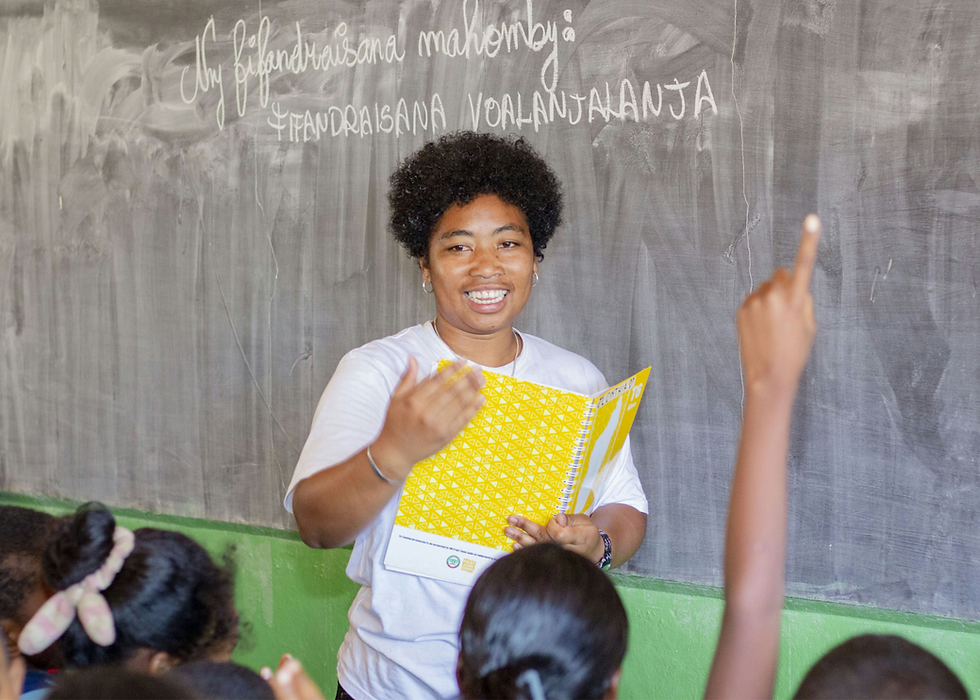Our Creative, Youth-Driven Approach to Knowledge Management
- Lilie Randrianasolo

- Jun 30, 2022
- 3 min read

Amplifying Youth Voices
Youth make up a large portion of Madagascar’s population: one out of two people is under 18 years old.* Projet Jeune Leader’s primary constituents are part of this population—young adolescents, most living in rural areas.
The middle school students that we serve with our comprehensive sexuality education program should be able to access effective health and education services. Unfortunately, over the past few decades, few programs and policies on sexual and reproductive health at national and international levels have adequately responded to the real needs of youth—if they respond at all.
At Projet Jeune Leader, we believe that for our program to be effective, we need to collect and respond to the feedback of youth constituents and others in their communities.
Since 2018, we have implemented an approach to gather and respond to our constituents’ comments via a magazine called “EKO.” To date, we have developed five magazine issues per year and printed thousands of copies that students read themselves and share with their parents. These magazines discuss themes around sexual and reproductive health and effective communication. Through the EKO magazines, we have been able to collect thousands of comments from youth expressing their thanks, their questions, their concerns, and their aspirations.
Ampitapitao! Centering Local Knowledge
Our approach to gathering community feedback is taking on a new dimension with a new magazine and knowledge management approach we are calling “Ampitapitao,” meaning “Pass it on” in Malagasy.
Ampitapitao aims to bridge the gap between the voices of youth at the local level and decision-making at the national level in Madagascar in order to shape more responsive, effective programs and policies. This initiative is funded by The Pitch, a competition by Knowledge SUCCESS for “Knowledge Management Champion Innovators” that we were awarded earlier this year.

First, we created a new magazine that shares information on youth sexual and reproductive health and rights (SRHR) and access to family planning. Like the EKO magazines, this new Ampitapitao magazine gives youth a way to send back their comments, particularly around what youth- and SRHR- oriented services, programs, and policies they want to see.
As students, their parents, and other local constituents read these magazines, they not only learn new knowledge but also gain a forum to share their perspectives. In just a few weeks of distribution at the end of the 2020-2021 school year, we received more than 5,000 comments.
Since the communities we work in are largely rural, we have found paper magazines and paper-based comments to be the most effective approach to sharing and collecting knowledge. However, to deepen dialogue, PJL’s Educators have also held special reading and discussion sessions for students and community members.
Connecting Local Voices to National Decision-Makers

We are now heading into the next phase of the Ampitapitao initiative, which will involve analyzing, coding, synthesizing, and communicating these local insights into new magazine issues specifically developed for decision-makers in Madagascar (and beyond!). In this way, Ampitapitao will serve as a much-needed bridge to bring local youth voices to the table—voices that otherwise are rarely heard.
A program or policy grounded in local needs and demands results in stronger, longer-lasting impact. “We are working to transform how youth voices get heard through articles in our upcoming magazine issues for decision-makers. There is no better way to represent youth’s ambitions and expectations than directly sharing their words in these magazines,” shares Tahiry Anjarasoa, our Communications and Accountability Assistant and one of the team members leading our Ampitapitao and EKO efforts.
We hope that, by transforming what kind of influence and whose influence is represented in national decision-making processes, we can make a tangible, systemic difference to improve the lives of Malagasy youth.

* Third Census, RGPH-3, INSTAT Madagascar, December 2020







